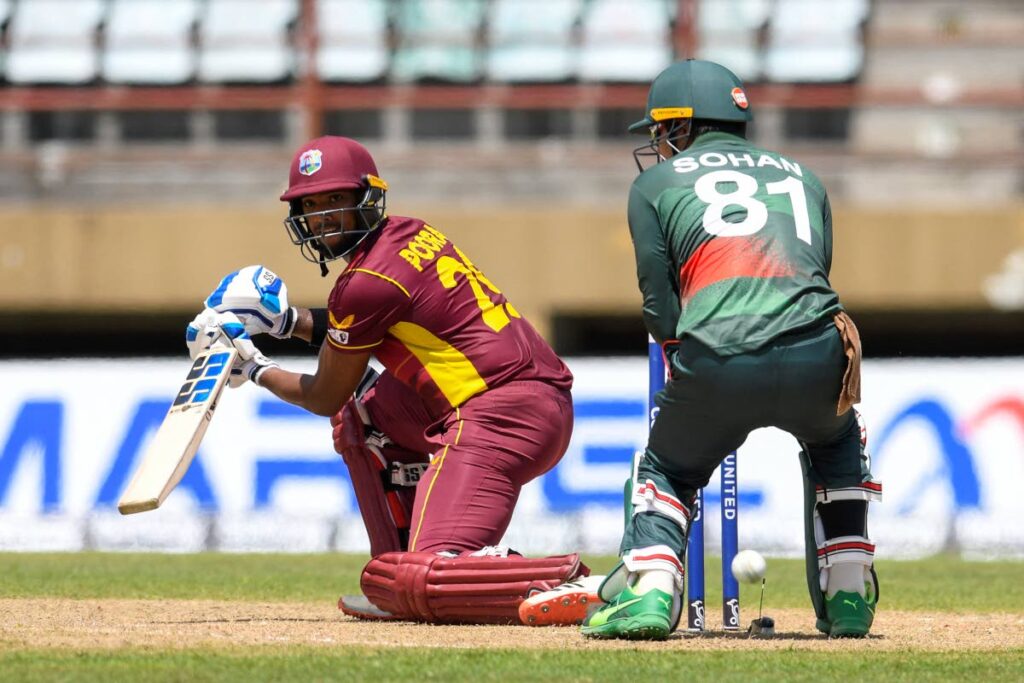Another 'new' era of West Indies cricket

GET ready for a new era of West Indies cricket. In the New Year, regional fans can expect a new white-ball captain, a new head coach, and new results. Who knew that it would be so easy to turn around West Indies' fortunes?
Wait – haven't we seen this before?
Last December, Cricket West Indies (CWI) fired its selection panel, led by Roger Harper, and brought in West Indies legend Desmond Haynes to head the committee. Same results.
In April, former white-ball skipper Kieron Pollard retired from international cricket after intense criticism of his personal form and the team's performance. Same results.
Last month, Trinidadian Phil Simmons resigned as head coach after a string of poor results in the white-ball formats, including a disastrous campaign at the ICC T20 World Cup in Australia.
On Monday, Nicholas Pooran followed suit by stepping down as captain of the T20 and one-day teams.
Good luck to whoever is appointed to drink of this poisoned chalice.
Pooran's decision to resign after just six months in charge simply allows fans another person to blame.
West Indies fans are some of the most passionate in the world – but are not very realistic.
The unique composition of the regional team, held together by a common history, and distant glory days, does not allow for an objective assessment of our cricket. Debates quickly descend into claims of nepotism and favouritism. Some fans are convinced that one player from their island would be the difference between winning and losing.
I am defending neither Pooran nor Simmons – even though they are my compatriots. The disclaimer is necessary because of what I said previously.
Pooran's personal form has been abysmal since taking over the job. His lean form extended to the Caribbean Premier League (CPL) and was one of the reasons the Trinbago Knight Riders failed to make it into the CPL semifinals.
It was a relief to see him regain confidence and form in the CG United Super 50 tournament, where he was the second-highest scorer, just four runs shy of Jamaica captain Rovman Powell (346 runs). However, Pooran had the best average (114.00) for any player who featured in more than three games. A scintillating century, two 50s and a number of not-out innings showed he is still an elite batsman.
In his resignation statement, Pooran assured fans that he remains "fully committed to West Indies cricket and I look forward to providing my services as a senior player in a supportive role."
It was refreshing to see a 26-year-old Pooran accept the captaincy and commit to two international formats. At a time when West Indies fans have bitterly complained about our stars representing franchise teams and not the maroon, Pooran followed in the footsteps of Bajan Jason Holder by putting West Indies first.
With the captaincy no longer making him an automatic pick on the team, let's hope Pooran continues to make himself available for regional duty and improves on his shot selection, which he himself acknowledged has been a challenge at times.
But the problem with West Indies cricket goes beyond Pooran. It is also not the selector, nor the coach.
West Indies need more quality batsmen and bowlers who are able to assess and adapt quickly on the field. Better coaching at the regional level is necessary. The call for better pitches throughout the region has repeatedly fallen on deaf ears.
In March this year, CWI sought to address the perennial problem of regional players' inability to transition properly to the international level, by setting up an Emerging Players Academy in Antigua.
CWI said, "The aim is to bridge the gap after the West Indies Under-19 level and assist their progression into one of the six territorial board franchise squads, with the intention that they will graduate to earn one of the 15 retainer contracts available in each team.”
Sceptical fans will recall similar ambitions when the regional board opened its first cricket academy in Grenada in 2001. Maybe this new academy will bring new results.
However, much of the development still takes place at the territorial level. The TT Cricket Board, Guyana Cricket Board, Jamaican Cricket Association, Barbados Cricket Association, Leeward Islands Cricket Association and Windward Islands Cricket Board of Control need to step up.
Last weekend, the TTCB held a local workshop for levels one and two coaches, aimed at "a paradigm shift" in the way youngsters are taught the game.
Level III tutor Debideen Manick, who facilitated the course alongside Bhoodish Dookie, told Newsday the global game has evolved but a number of coaches in the region have not done refresher courses, and are still teaching the game using old methods.
Manick, who boasts over 30 years' experience in coach development, said West Indies' defeat by Scotland at the World Cup showed the game in the region is at a crossroads.
He said the fundamentals of cricket remain, but modern coaching requires a more "player-centred approach" than the past.
The course focused on technique, preparation, developing intensity and strategies.
"It is a way the cricket board in India and the sport’s other powerhouses have adopted to great effect,” said Manick.
The impact of this course, which was developed by Manick, is left to be seen.
What is certain is that there will be no quick fix for West Indies. However, it is changes at the grassroots level that will make the difference, not plasters on the surface.


Comments
"Another 'new' era of West Indies cricket"